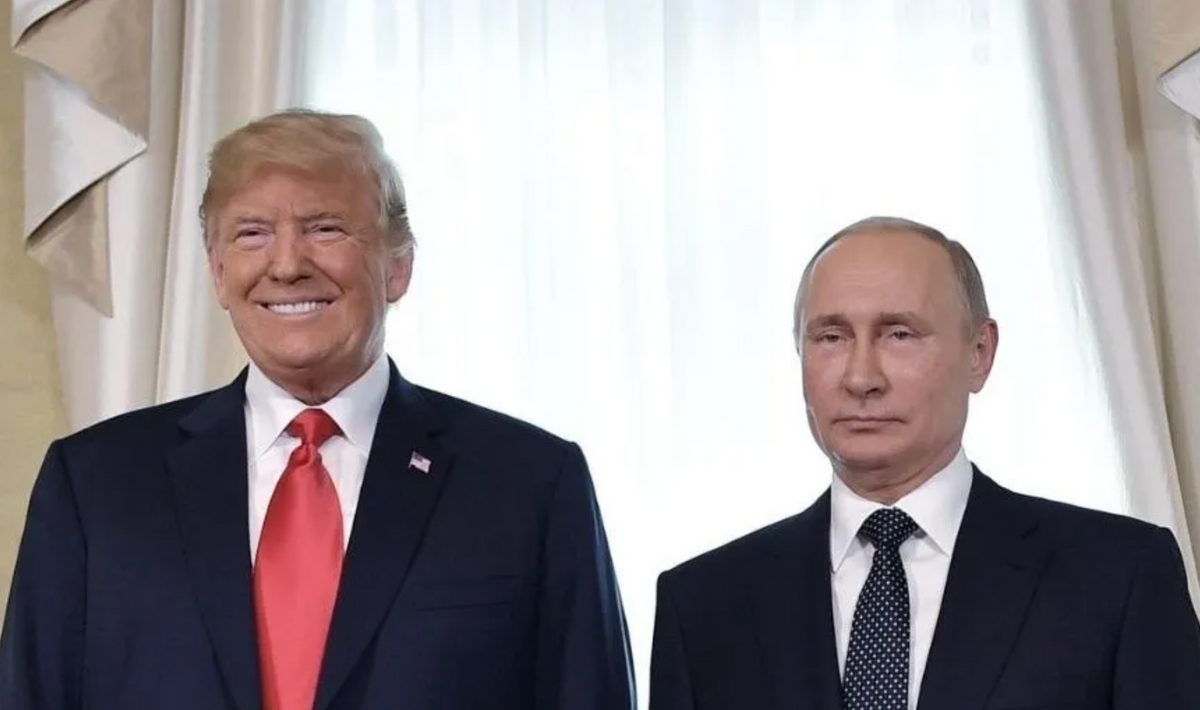candace owens
Top stories
Unity Abroad, Dysfunction at Home: Allies vs. Underminers of U.S. Policy Toward Russia
If there’s one thing Russia has managed to accomplish this week with its brazen, illegal and ill-considered invasion of Ukraine, it was to strengthen the NATO alliance and once again align E.U. nations with the United States in foreign policy and commitment against aggression.
The 27 nations of the E.U. along with Japan agreed unanimously to impose crippling financial sanctions on Russia in lockstep with the United States, with some 80 percent of the country’s assets held in U.S. dollars that are now under Treasury restriction. Importantly, Germany even halted certification on the critical Nord Stream 2 gas pipeline worth $16 billion to Russia. As Alina Polyakova, president of the Center for European Policy Analysis, noted, “The Biden Administration has done an impressive diplomatic job coordinating the allies. And Germany took the difficult step of stopping Nord Stream 2.”
Ian Bremmer of the Eurasia Group, a prominent political risk research organization, agreed. He observed that the “sanctions on Russia are significant and—most importantly—unified.” He added that “if Putin thought his speech yesterday would drive a spike in the NATO alliance, he was seriously mistaken.”
While the international community is cheering the unity displayed under President Biden’s leadership, at home his critics have taken the unusual step of criticizing the sitting president during a time of high risk of war. Former President Trump broke a long tradition of former presidents staying mum in such times, even praising Russia’s President Vladimir Putin as “very savvy” and a “genius” for his ploy of calling the troops “peacekeepers.”
On Fox News, host Tucker Carlson wasted no time coming to Putin’s defense, asking why people should hate him and invoking the culture wars back home as somehow more relevant and important than the threat posed by Russia. “It may be worth asking yourself,” he asked, ”why do I hate Putin?... Has Putin ever called me a racist? Has he threatened to get me fired for disagreeing with him?” The pitch for Putin was so positive that Russian state television even aired it with translations at the bottom. He also argued, incredibly, that the Biden Administration was “provoking conflict” in order to push alternative energy.
Other conservative U.S. commentators also enthusiastically carried Russia’s water. Far-right agitator Candace Owens scolded America, asking us to stop talking about Russia and to send troops to Canada (yes, Canada) to “deal with the tyrannical reign of Justin Trudeau Castro.” She urged her followers to read Putin’s speech and conclude, as she apparently has, that NATO is violating agreements and pushing eastward, and that therefore “WE are at fault.” Lest we dismiss Owens as just a sad and badly misinformed troll, she also happens to have the ear of the former president and even held an interview with him recently.
The contrast of unity among our allies and a gallery of rogues taking pot-shots at home underscores a critical point: Should extremists within the GOP regain control of Congress and/or the White House, autocrats like Putin likely would see it as a green light to simply continue to do as they please. It is not just the stability of the United States alone that is at stake this November and in 2024.
It’s perhaps a good time to remember that Trump was willing to trade the entire security of Ukraine for a chance to falsely undercut his political rival by threatening to withhold military assistance—unless they created and announced a bogus investigation into Hunter Biden. Trump was impeached for this quid pro quo, but a feckless and cowardly GOP-controlled Senate refused to hold him accountable, and then they acquitted him again even after Trump unleashed a mob on the Capitol on January 6 and was impeached a second time.
Now Donald Trump lurks as the leading contender for the GOP nomination in 2024, and the world is a far less safe place as a result. The situation in Ukraine is likely part of a long game by Putin with something to gain that is far more valuable to him than a buffer along Ukraine’s eastern border with Russia. Putin no doubt sees Trump as a very useful tool in achieving his ultimate ends, whatever they are, and likely will do everything in his power to help him win reelection.
Trump knows and understands this, of course. It is precisely why he is cozying up to Putin now.
For more political analysis, subscribe to the Status Kuo newsletter.
 SECONDNEXUS
SECONDNEXUS percolately
percolately georgetakei
georgetakei comicsands
comicsands George's Reads
George's Reads





